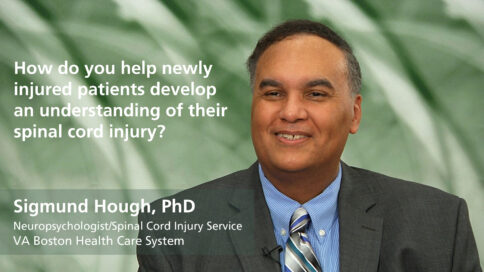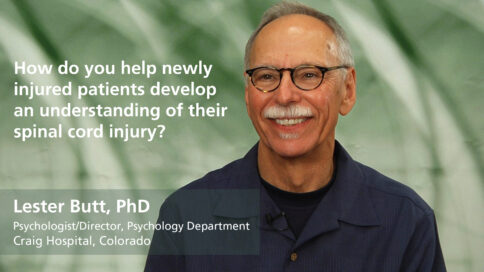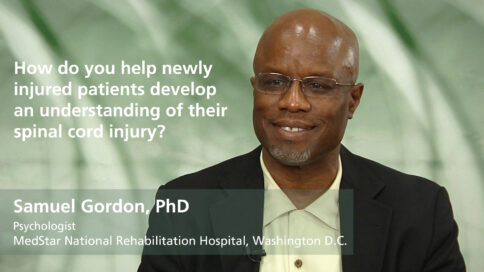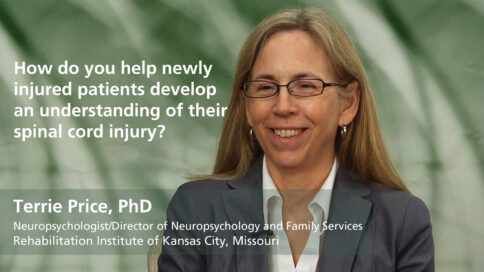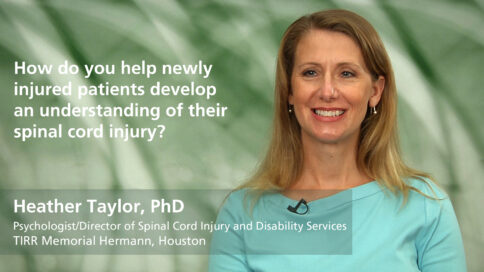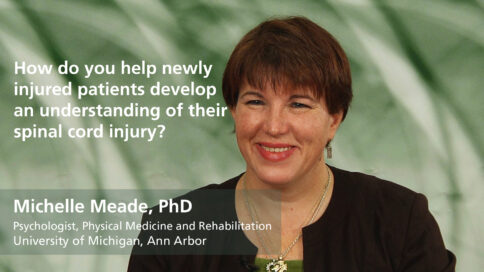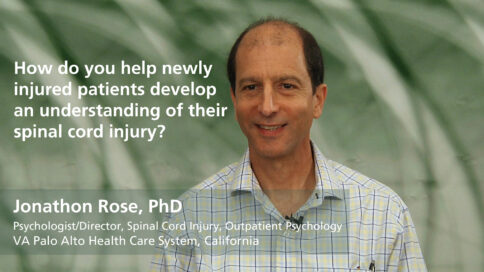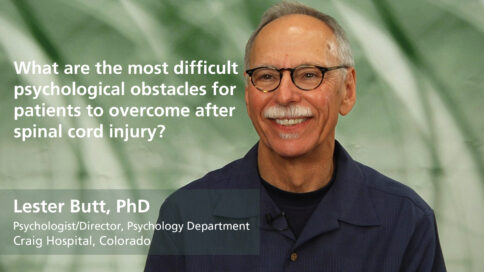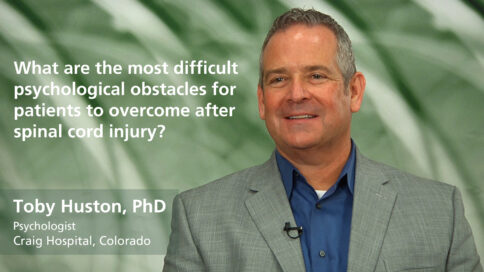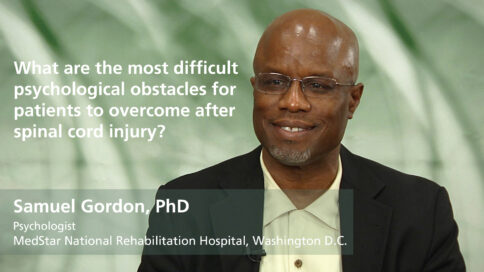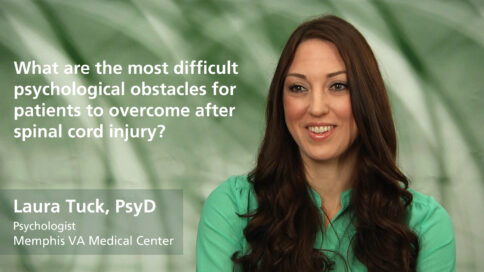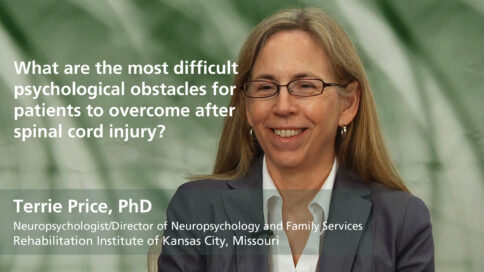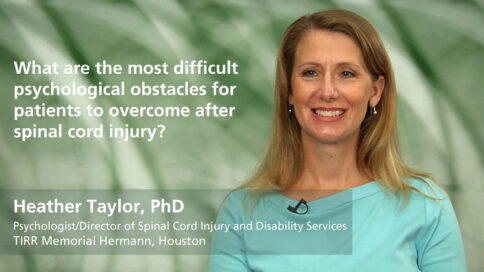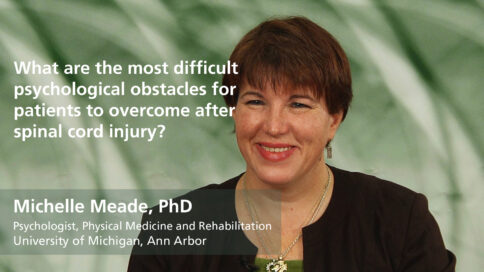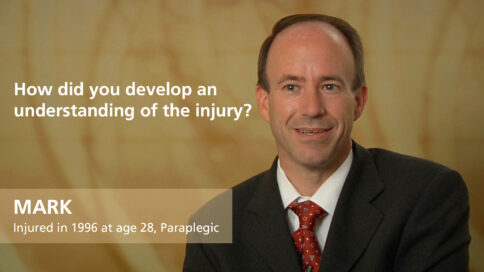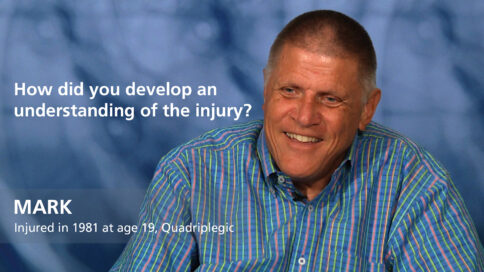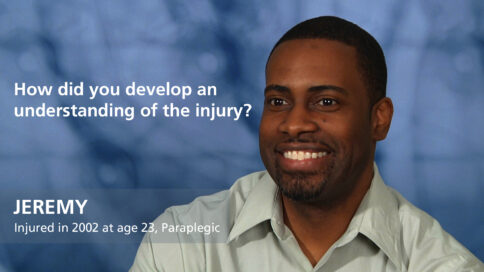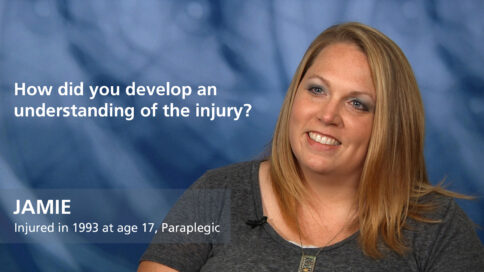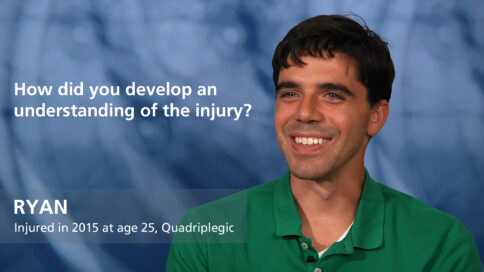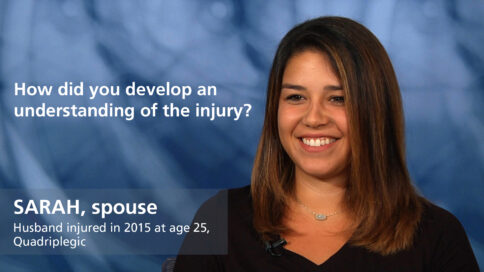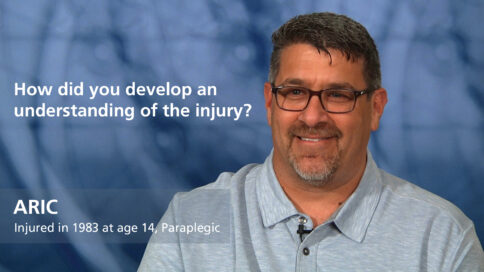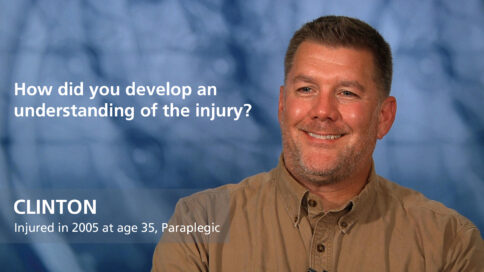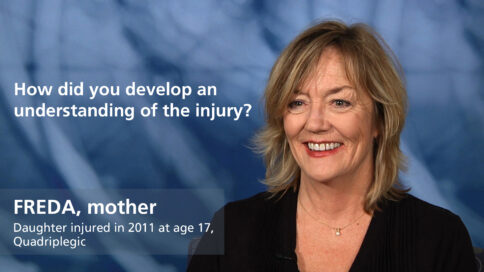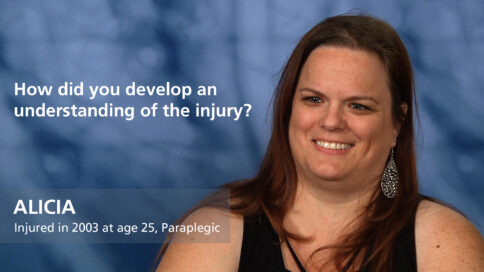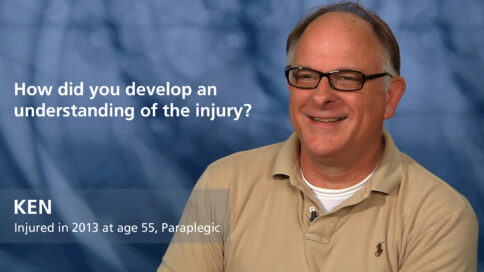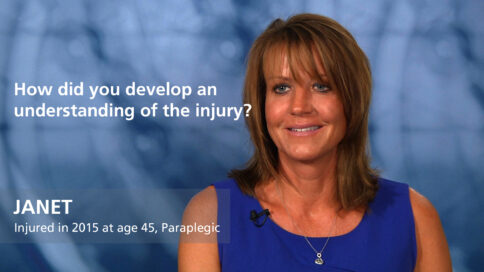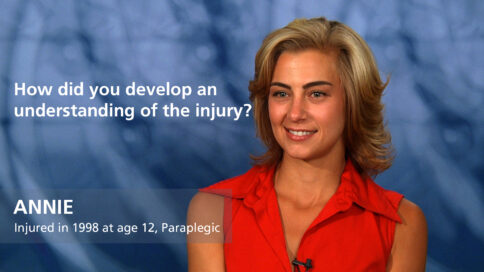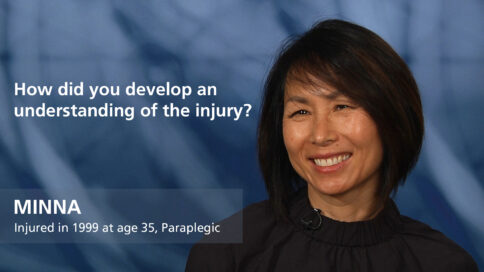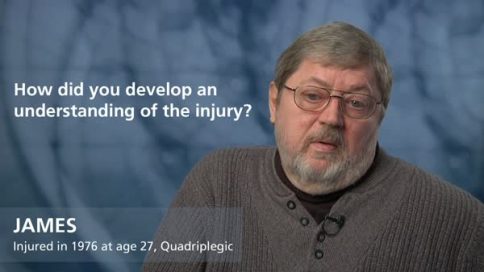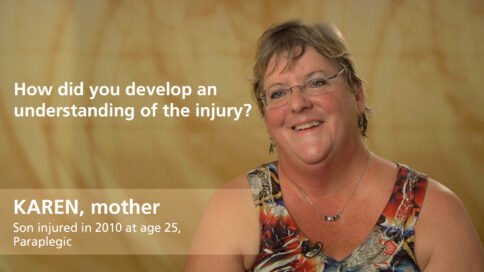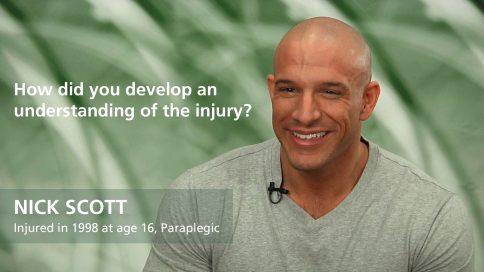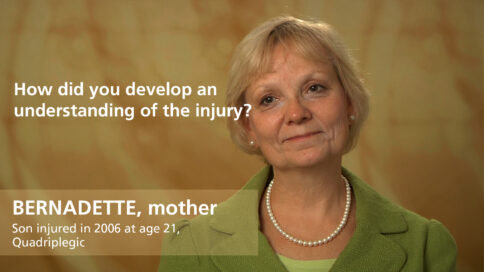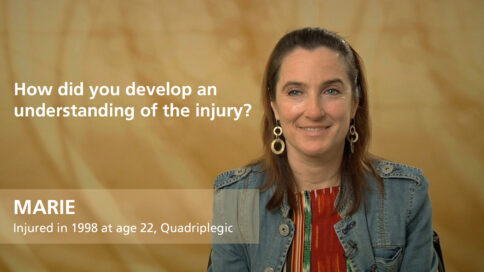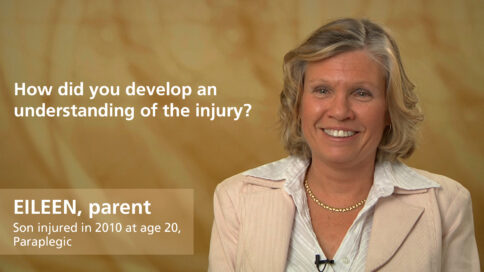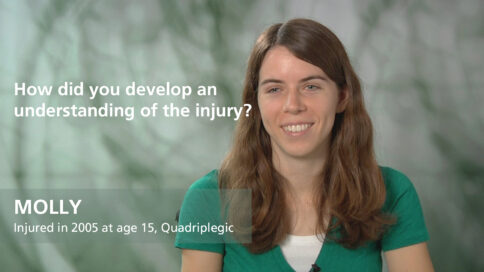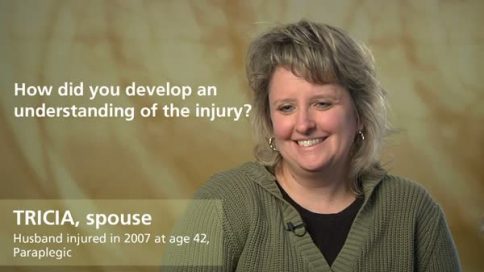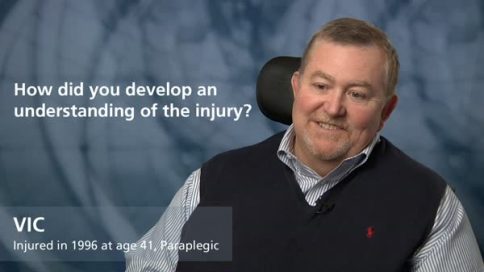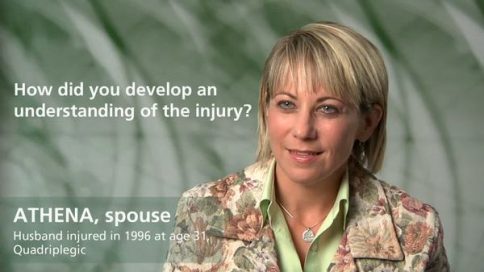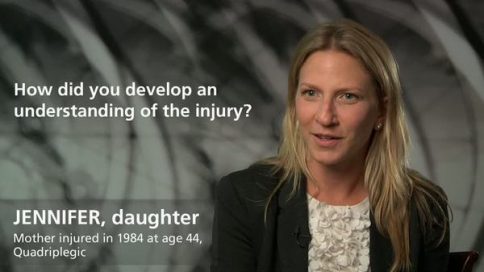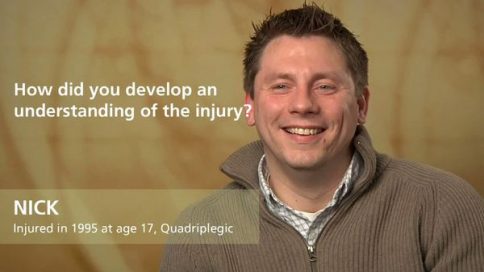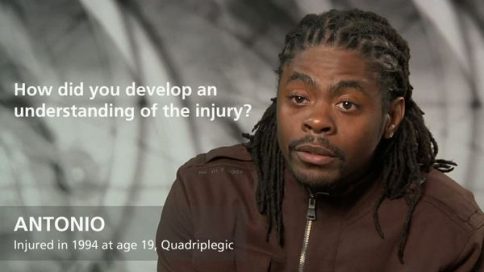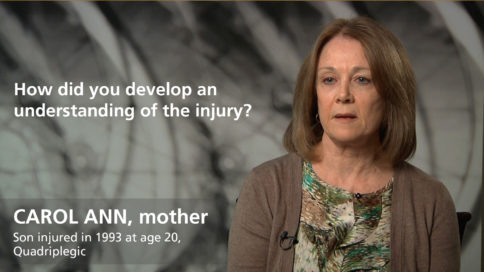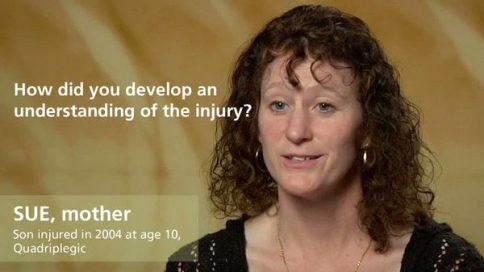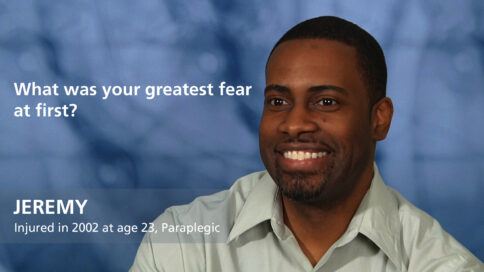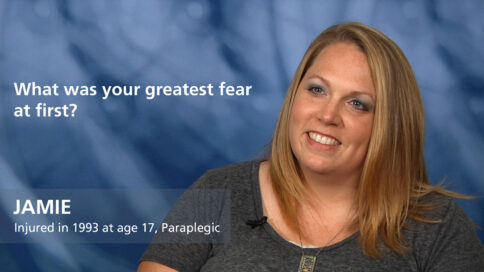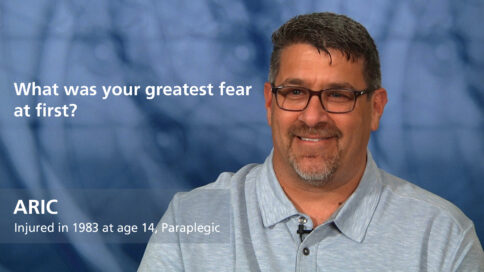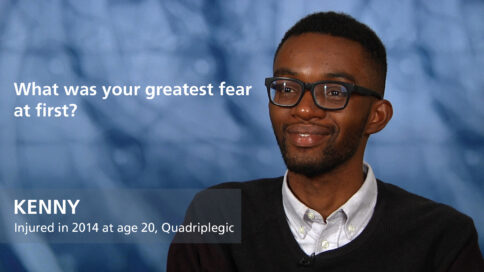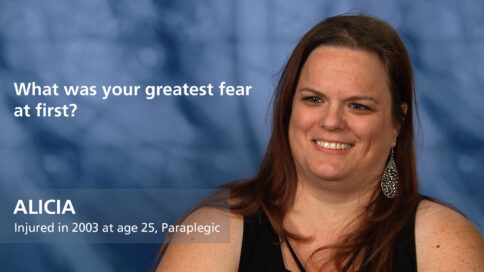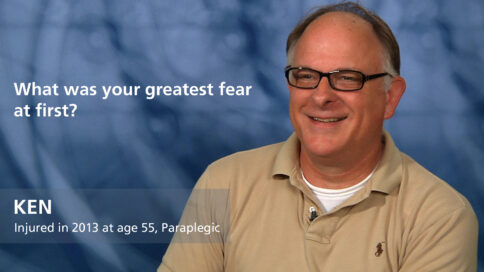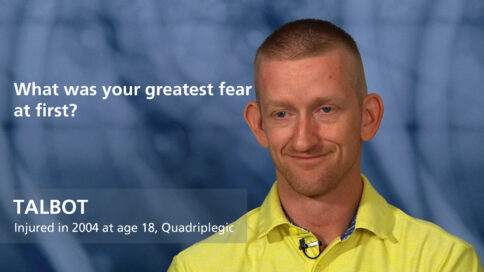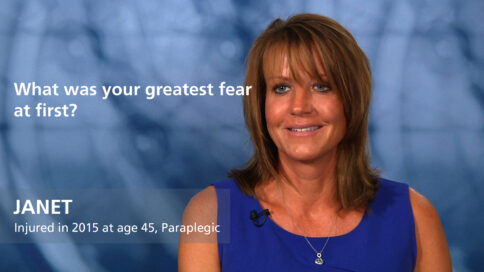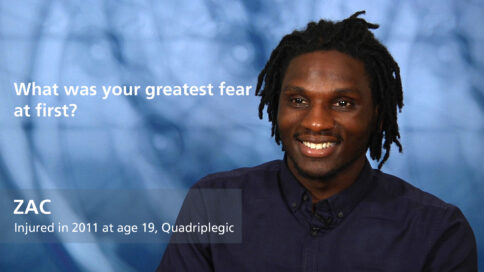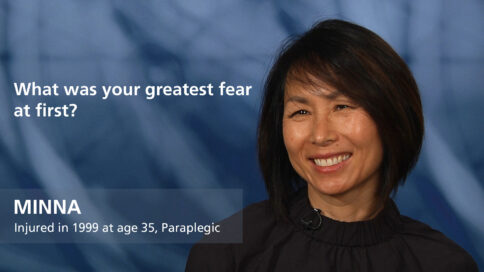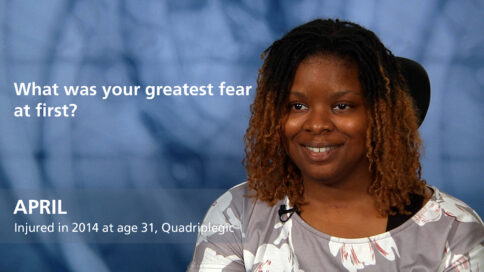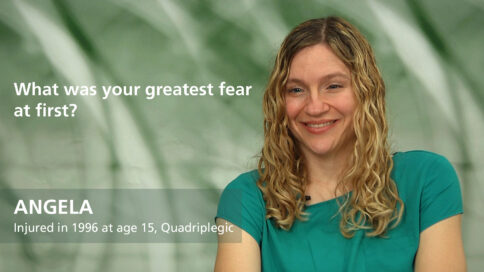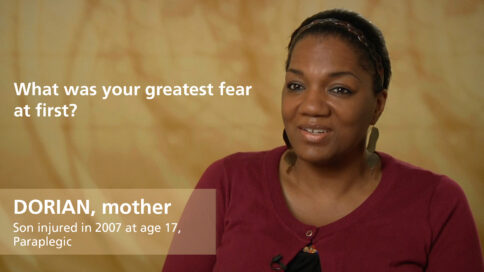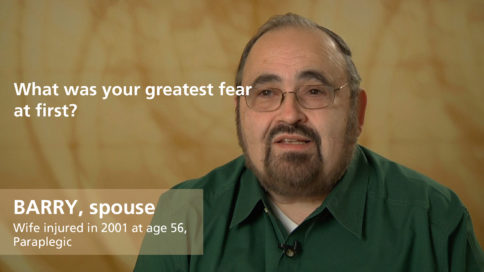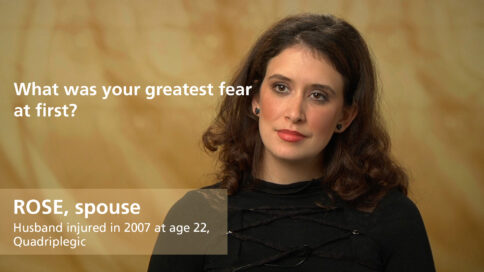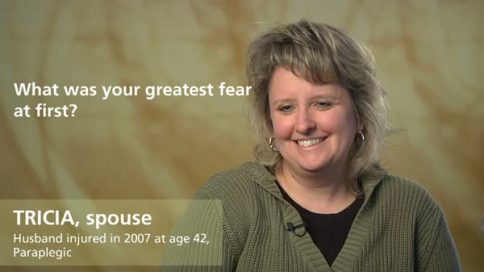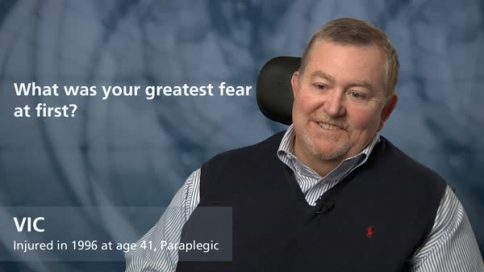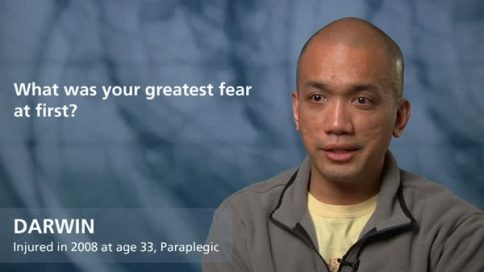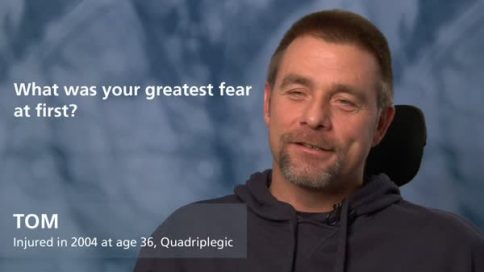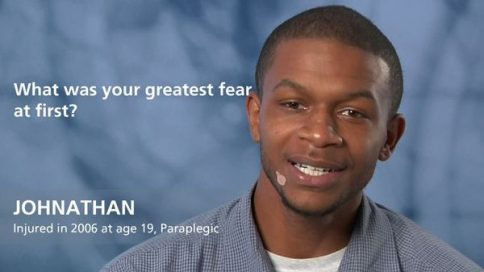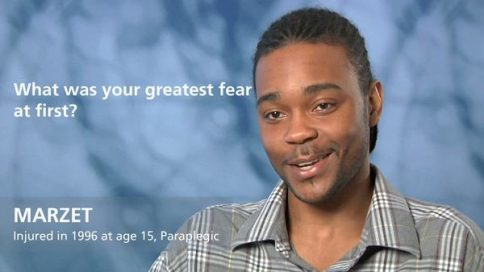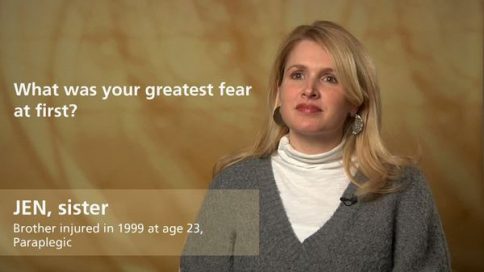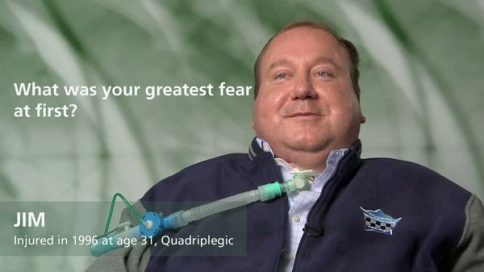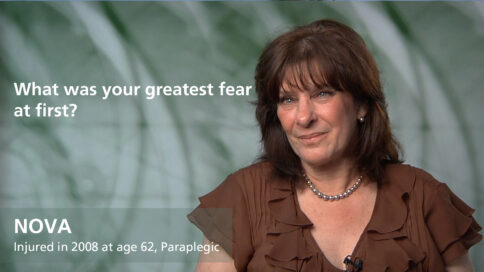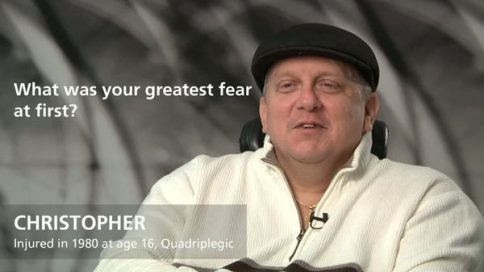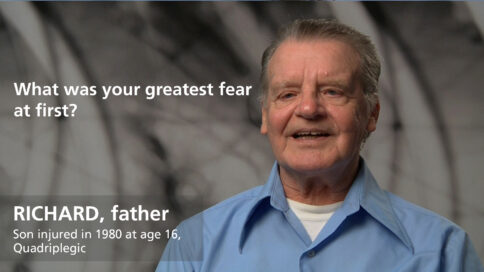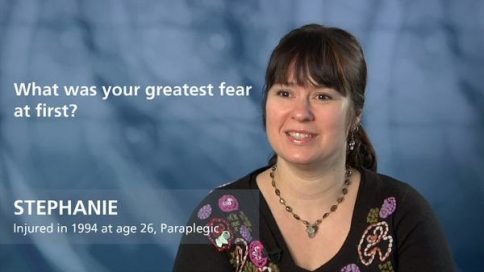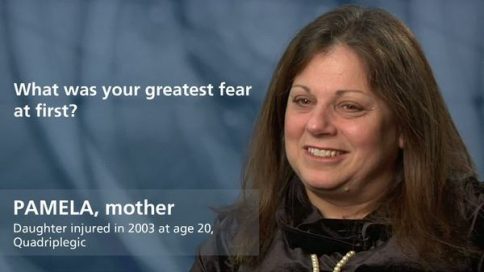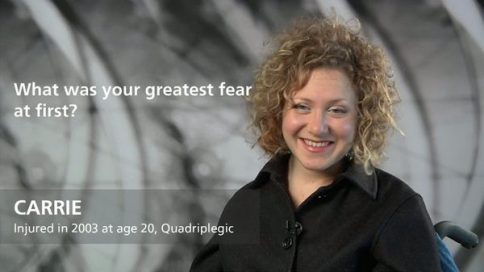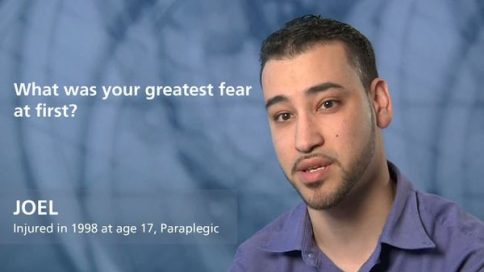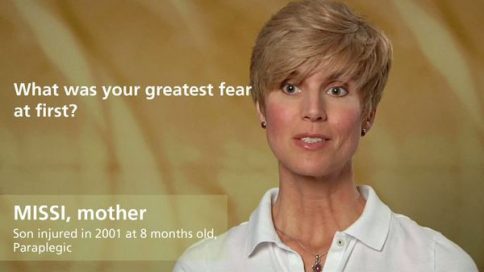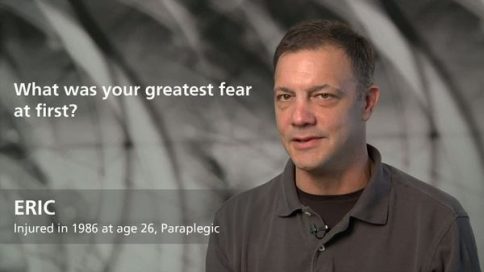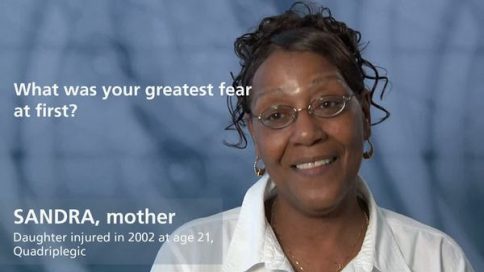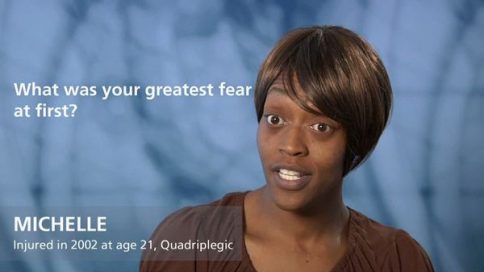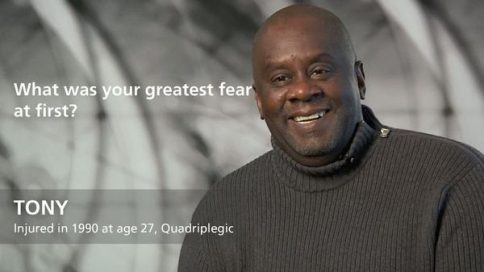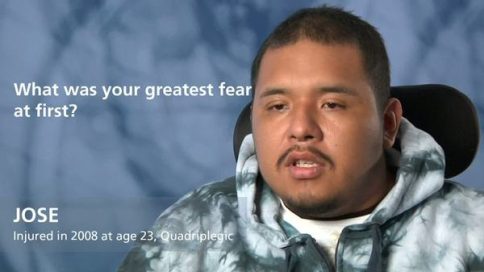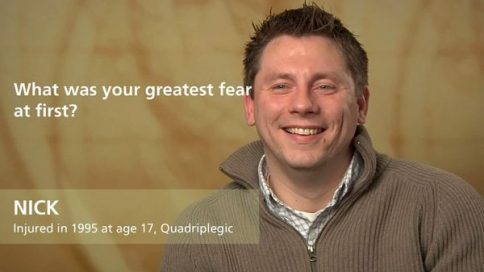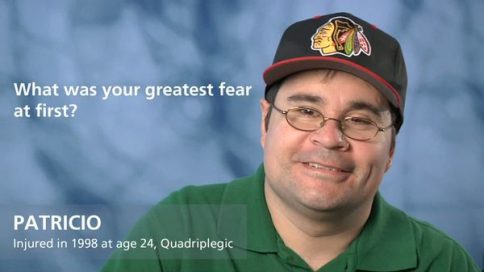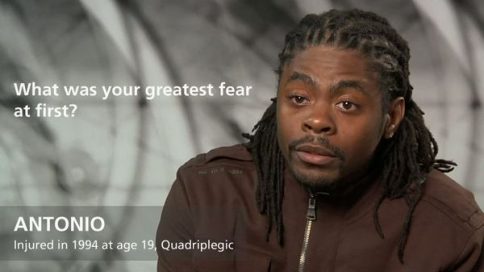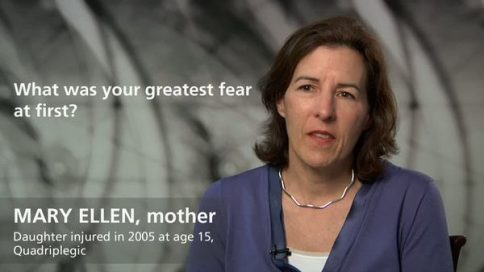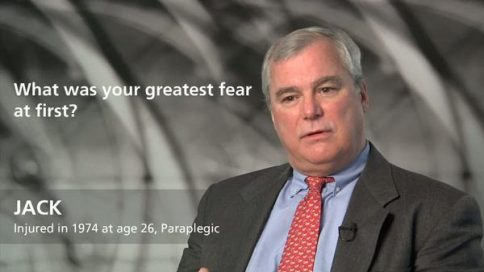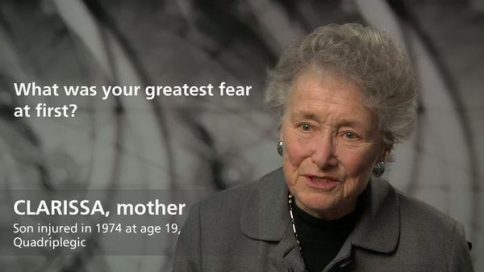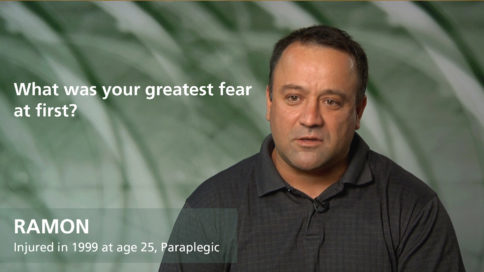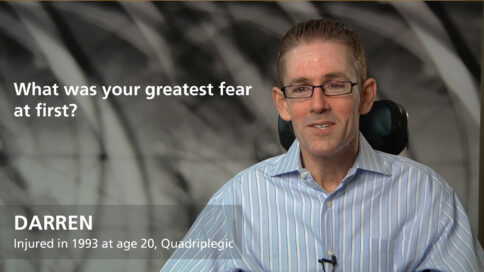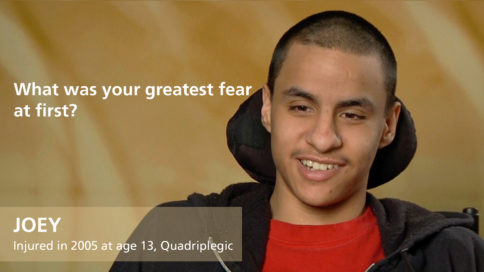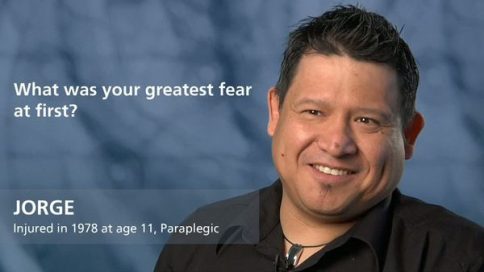What are the typical stages of adjustment after a spinal cord injury? - Allen Heinemann, PhD
|
|
What are the typical stages of adjustment after a spinal cord injury? |
|
Allen Heinemann, PhDProfessor, Feinberg School of Medicine, Northwestern University, Chicago |
||
| Read Bio | More Videos by Allen Heinemann | |
|
Share |
||
Transcript
It takes time, and there’s no simple cookie-cutter solution. People find their own solutions that work, sometimes more speedily than others. Adjustment occurs in phases over time. There are initial issues of, “What happened to me?”—and, “What’s possible and what’s not?” There are intermediate kinds of concerns like, “How do I get in and out of my home, or get around in my community?” And then, longer term goals like, “How do I resume a meaningful and satisfying life?” If employment was possible before, “Am I going to be able to return to a job?”—or, “complete school, so that I am qualified for employment?”—“If I have other people I’m caring for who are near me, are there ways to maintain and sustain those relationships?” What I’ve heard patients talk a lot about is how important relationships become over time. Approximately, four out of five spinal injuries occur to men, and a big wake-up call for a lot of guys is that the relationships with a wife, or a girlfriend, or family member becomes much more important. They become more appreciative of relationships, and the relational transactions that occur.
Show Less|
|
||
add
What are the typical stages of adjustment after a spinal cord injury? |
||
Allen Heinemann, PhDProfessor, Feinberg School of Medicine, Northwestern University, Chicago |
More Videos by Allen Heinemann | |
| Transcriptadd | share | |
It takes time, and there’s no simple cookie-cutter solution. People find their own solutions that work, sometimes more speedily than others. Adjustment occurs in phases over time. There are initial issues of, “What happened to me?”—and, “What’s possible and what’s not?” There are intermediate kinds of concerns like, “How do I get in and out of my home, or get around in my community?” And then, longer term goals like, “How do I resume a meaningful and satisfying life?” If employment was possible before, “Am I going to be able to return to a job?”—or, “complete school, so that I am qualified for employment?”—“If I have other people I’m caring for who are near me, are there ways to maintain and sustain those relationships?” What I’ve heard patients talk a lot about is how important relationships become over time. Approximately, four out of five spinal injuries occur to men, and a big wake-up call for a lot of guys is that the relationships with a wife, or a girlfriend, or family member becomes much more important. They become more appreciative of relationships, and the relational transactions that occur.
